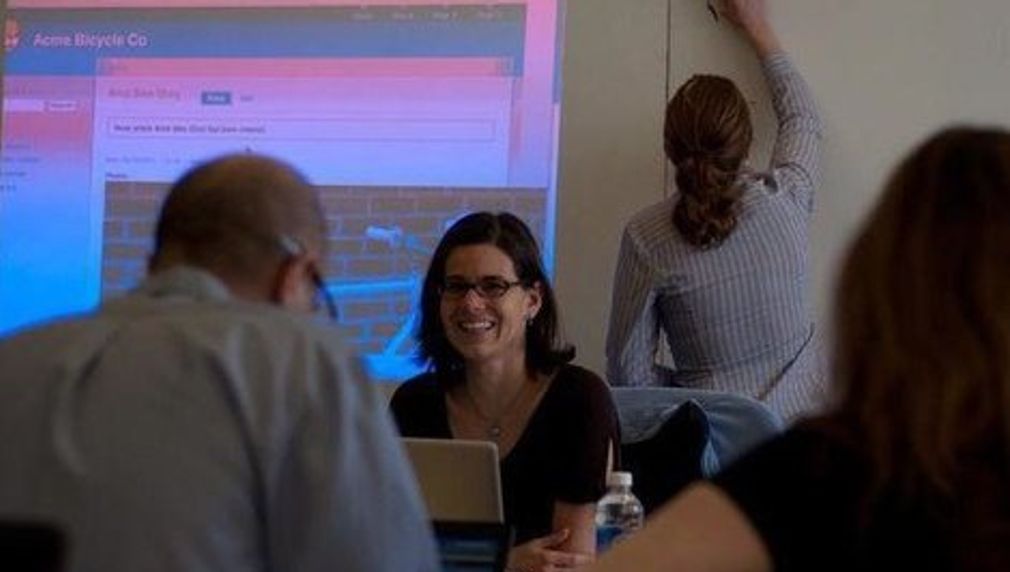Droplabs
Droplabs is an open source focused, community led, Innovation Laboratory and teaching space.
Visit this organization’s website to learn more

2 Submitted Ideas
 CREATE ·2014 Grants Challenge
CREATE ·2014 Grants ChallengeDroplabs

Droplabs is bursting at the seams. We want to expand our services to include more space, maker offerings, and more classes.
- 2013 Grants Challenge
The Moebius Incubator: A New Step for L.A.s Entrepeneurs

The Moebius Incubator is a start-up incubator based in Los Angeles with two aims: to dive deep into the problems of making great products and to make companies that are both profitable and socially beneficial. Our dream is to seed a new culture of entrepreneurship. L.A. is currently rated 3rd in the world for start-ups (as seen in the Startup Ecosystem Report: http://reports.startupcompass.co/StartupEcosystemReportPart1v1.2.pdf). We aim to leverage this strength in order to address the problems of employment and income disparity L.A. faces. The Moebius Incubator attempts to innovate on the incubation cycle, and in so doing make entrepreneurship more socially relevant and available as a career to a broader pool of people. Our first innovation is to directly tackle the problems of making great products: namely engineering and design. Many incubators currently rely on the talents of their participants to develop great products. We believe we can support entrepreneurs in this process. Both research and traditional wisdom indicate that project-based and contextual learning goes the deepest and lasts the longest. We propose a model of incubation which provides not only support for traditional business development but also engineering and design. We aim to do this in two ways. One is to develop a best practices model: what work out there is most relevant to the engineering and design experience in 2013? By establishing a canon of the best design — from the revered practices of Edward Tufte to the contemporary practices of Bret Victor — as well as the best engineering — ranging from the new wave of real-time frameworks such as Meteor.JS to the visionary work of computing legend and Los Angeles based Alan Kay — we believe we can give our entrepreneurs a strong starting point to work in the information economy. Secondly, we aim to hire in our incubator a design and engineering coach to provide weekly support and mentorship for projects. By shifting away from a class based model and to a project-based model, we adapt what we have seen to work in the best K-12 education (such as San Diego’s High Tech High) to the entrepreneurial space. We will also have a business mentor — recognizing the depth of service incubators currently provide in shaping business plans and facilitating hard-to-find connections to investors. Our other major innovation as an incubator is to select companies along two metrics: profitability and social good. We deeply believe that the most profitable work will be the work which helps individuals, families, and cultures grow. Apple has been a testament to the profitability of beautiful design. We seek to expand on their vision and look for other opportunities where human development — be it individual or cultural — and entrepreneurship can be aligned. The question of evaluating socially meaningful work and having it survive the necessary pivots of business will be a challenge. We draw inspiration from organizations like Givewell.org that through a research based approach we can understand what truly will help our society and shape our companies accordingly. While this work — of evaluating companies for social good — will be a continued research process, we believe signs like the UN ratification of the triple bottom line in 2007 ( ) show that we are ready for the development of further metrics for business success alongside the classical revenue and profit based metrics. Logistically, we aim to host our first class from late September to December of 2013, using the grant funding to run operational costs. We aim to raise seed funding for the companies separately. May to September will be spent interviewing candidates, researching best practices in engineering, design, and incubation, and hiring mentors for the launch. Our short time line will let us see how viable this model is quickly. Our dreams are to find the momentum to seed a new culture of innovation in Los Angeles — one with it’s own clear and unique character. We believe that entrepreneurship can grow in two ways: by becoming a force in the care of our city on all fronts, and by becoming a career path that a wide swath of people see as viable for themselves. Our strategy — to support the growth of entrepreneurs on all fronts and to engage a second social metric as a requirement for success — aims to provide the roots required. We believe that in 2050 entrepreneurship is something Los Angeles can look at with gratitude for both what is has done for us as well as who it lets all of us become.